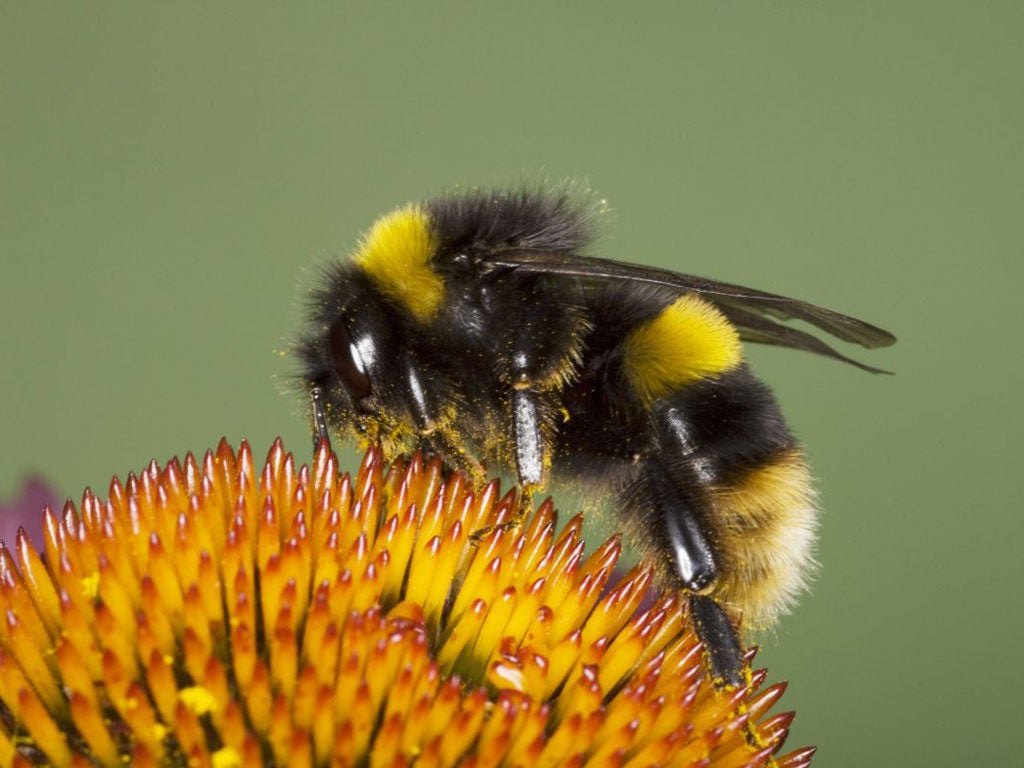Britain opposes EU pesticide ban on neonicotinoid pesticides blamed for bee deaths around the world.

Extraordinary steps were taken by the British Government last night to head off a proposed EU ban on neonicotinoid pesticides, which have been widely blamed for bee deaths around the world.
The Environment Secretary, Owen Paterson, circulated a note to all 27 EU member states saying there was not enough evidence yet for a ban, which environmental campaigners have increasingly called for and is already supported by 13 EU countries. In a Brussels vote on a ban last Friday, in which the UK Government abstained, the necessary majority could not be reached and the issue remained deadlocked. The British abstention was widely criticised.
However, under EU rules, if the deadlock continues, the European Commission, the EU civil service which proposed the suspension of the three most widely used neonicotinoids, can bring a ban in of its own accord. It is this move Mr Paterson is seeking to head off by persuading other member states that the evidence is not there – although 30 scientific papers have linked the substances with harm to bees in the last three years.
The UK note to all EU agriculture ministers challenges Brussels to present scientific proof based on “real-world, not theoretical” studies that pesticide poisoning is to blame. It says: “All pesticide use should be controlled so as to prevent unacceptable effects on non-target species and the environment, as well as preventing harmful effects on human health.”
Join our commenting forum
Join thought-provoking conversations, follow other Independent readers and see their replies
Comments
Bookmark popover
Removed from bookmarks